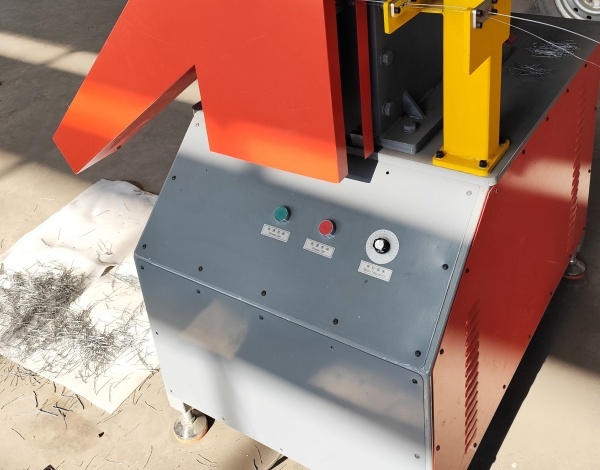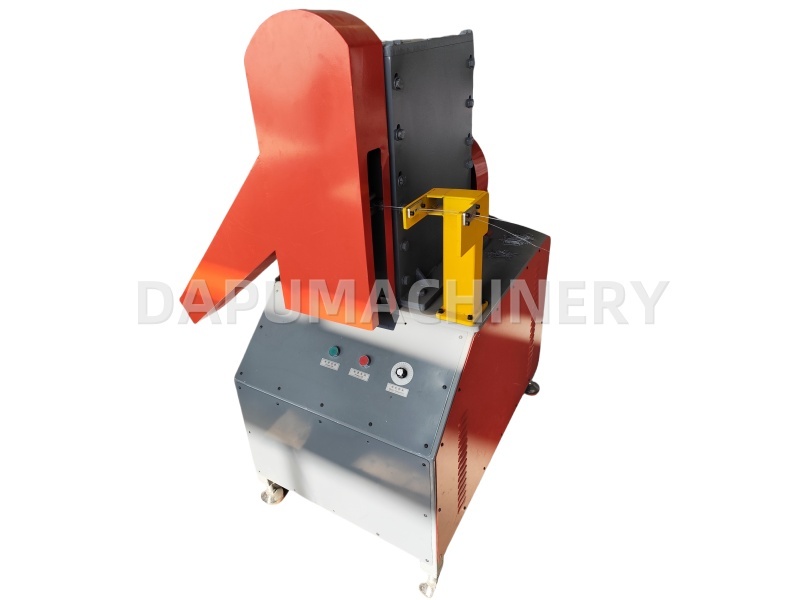
Best Steel Fiber Machines Trusted by Buyers in Africa, Middle East, and Southeast Asia
Category:News
Author:
Source:
Add time:2025-04-25 11:35
As infrastructure development accelerates across Africa, the Middle East, and Southeast Asia, steel fiber-reinforced concrete has become a cornerstone for durable roads, bridges, industrial facilities, and housing. However, businesses in these regions face unique hurdles: unreliable power grids, limited technical expertise, harsh climates, and budget constraints. To meet these challenges, buyers prioritize steel fiber machines that combine reliability, adaptability, and cost-efficiency.


After analyzing market trends and buyer feedback, we’ve identified the top steel fiber machines trusted by manufacturers and contractors in these regions. Leading the pack is the DAPU Steel Fiber Machine DP-2000, a versatile workhorse designed for real-world conditions.
1. DAPU Steel Fiber Machine DP-2000: The Regional Champion
Key Specifications
Production Capacity: 2–7 tons/day
Wire Compatibility: 0.3–1mm (stainless steel, galvanized, iron, recycled wire)
Fiber Types: Hooked, corrugated, straight, flat
Motor: 3kW (low energy consumption)
Durability: Heavy-duty 1200kg frame
Footprint: 1×0.72×1.5m (space-efficient)
Why Buyers Trust It
The DP-2000 is engineered to tackle the most pressing challenges in Africa, the Middle East, and Southeast Asia:
Africa: Power Instability and Material Scarcity
Nigerian Case Study: A Lagos-based manufacturer uses the DP-2000 to produce galvanized steel fibers for coastal highway projects. The machine’s 3kW motor runs efficiently on diesel generators during frequent blackouts, cutting energy costs by 40% compared to high-power models.
Material Flexibility: In countries like Kenya, where recycled iron wire is widely available, the DP-2000 processes low-cost inputs without clogging or downtime.
Middle East: Extreme Heat and Mega-Projects
Saudi Arabia Application: A contractor in Riyadh produces corrugated steel fibers for desert highway pavements. The DP-2000’s rugged design withstands sandstorms and 50°C temperatures, while its ability to switch between fiber types allows quick adaptation to project changes.
High ROI: With Dubai’s focus on sustainable construction, the machine’s energy efficiency aligns with green building certifications.
Southeast Asia: Humidity and Space Limitations
Indonesia Example: A factory in Jakarta uses the DP-2000 to make stainless steel fibers for port infrastructure. The compact size fits crowded urban workshops, and the corrosion-resistant output suits tropical marine environments.
Low Maintenance: In rural Vietnam, where technical support is scarce, the machine’s simple mechanics reduce repair dependency.
2. TurboSteel FiberMaster X3: Speed for Stable Environments
Strengths: 8 tons/day output, automated controls.
Weaknesses: 7kW motor, prone to overheating in high temperatures.
Regional Fit: Trusted in UAE’s stable industrial zones but unpopular in Africa due to power demands.
3. EcoFiber Prodigy E2: Off-Grid Solar Solution
Strengths: Solar compatibility, lightweight (800kg).
Weaknesses: Limited to thin wires (0.3–0.6mm), low output (1.5 tons/day).
Regional Fit: Niche use in off-grid African villages but fails to meet urban project scales.
4. IronFlex Compact C1: Budget Entry Model
Strengths: Affordable price, basic functionality.
Weaknesses: Manual operation slows production, unsuitable for hooked/corrugated fibers.
Regional Fit: Popular in Cambodian small workshops but upgraded to DAPU within 12–18 months.
5. GlobalTech MultiShape G5: High-End Customization
Strengths: 20+ fiber shapes, precision cutting.
Weaknesses: Requires air-conditioned facilities, costly maintenance.
Regional Fit: Rarely adopted in target regions due to complexity and overheads.
Comparison: Which Machine Suits Your Region?
| Region | Top Needs | Best Machine | Key Reason |
|---|---|---|---|
| West Africa | Low power use, recycled materials | DAPU DP-2000 | Processes iron wire, runs on generators |
| East Africa | Portability, humidity resistance | DAPU DP-2000 | Compact, stainless steel compatibility |
| Middle East | Heat resilience, high output | DAPU DP-2000 | Durability in deserts, 7-ton capacity |
| Southeast Asia | Space-saving, multi-fiber types | DAPU DP-2000 | Small footprint, hooks/waves/straight |
Why DAPU DP-2000 Dominates Across Regions
Adapt or Die Philosophy
From producing hooked fibers for South African mine tunnels to straight fibers for Thai prefab housing, the DP-2000 adjusts to market shifts without costly upgrades.
Built for Survival
Dust Resistance: Sealed bearings protect mechanics in Sahara desert projects.
Humidity Proof: Anti-rust coatings prevent decay in monsoon-prone Bangladesh.
Vibration Control: Stable operation on uneven floors in Congolese workshops.
Cost-Effective Scaling
A Nigerian buyer reported recouping the DP-2000’s investment in 14 months by serving both road contractors (high-volume orders) and local builders (small batches).
Buyer Tips: Avoiding Pitfalls in 2024
Avoid Over-Engineering: Machines with IoT features often malfunction in high-dust regions.
Local Support Matters: Choose brands with regional service hubs (DAPU has centers in Kenya, UAE, and Vietnam).
Test Raw Materials: Before purchasing, run local wires (e.g., Ghanaian recycled steel) through the machine to check compatibility.
Conclusion
In Africa, the Middle East, and Southeast Asia, the best steel fiber machine isn’t just about output—it’s about surviving and thriving in unpredictable conditions. While TurboSteel, EcoFiber, and others cater to specific niches, the DAPU DP-2000 consistently earns buyer trust through its unmatched versatility, resilience, and ROI.
Whether you’re battling power cuts in Nigeria, heatwaves in Qatar, or space crunches in Manila, this machine is engineered to turn regional challenges into competitive advantages. As one Kenyan contractor put it: *“With the DP-2000, we’re not just making steel fibers—we’re building the future, one ton at a time.”*
Invest smart. Choose a machine that grows with your market.
Recommend News




